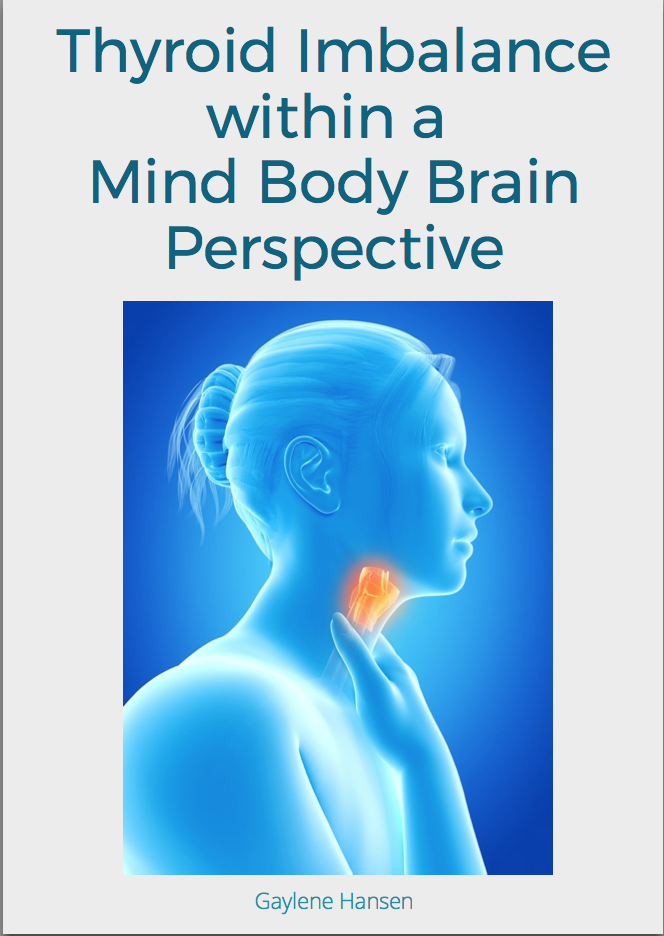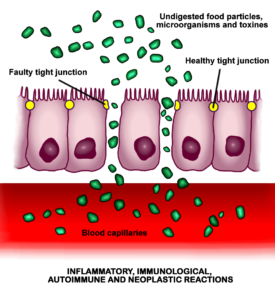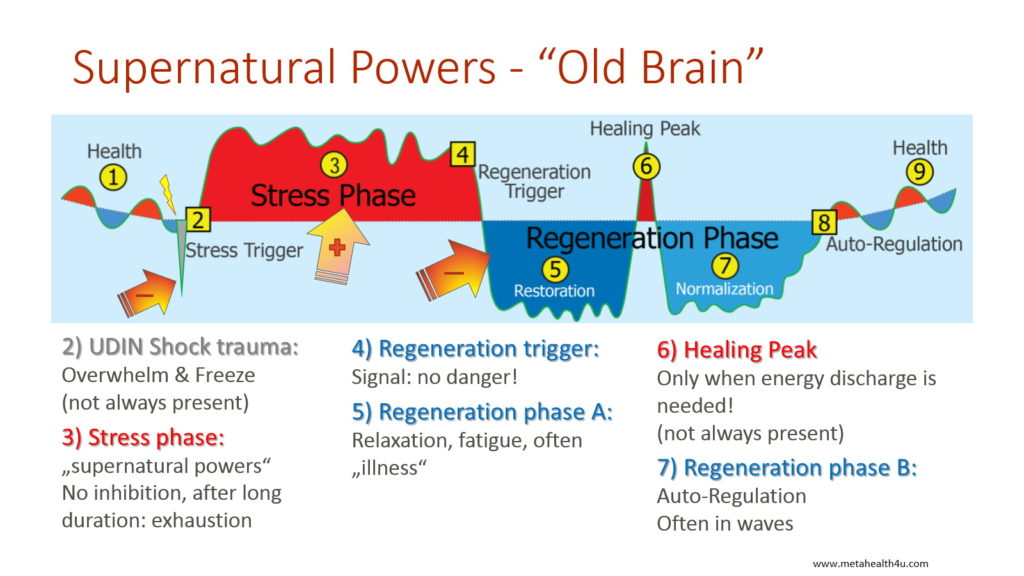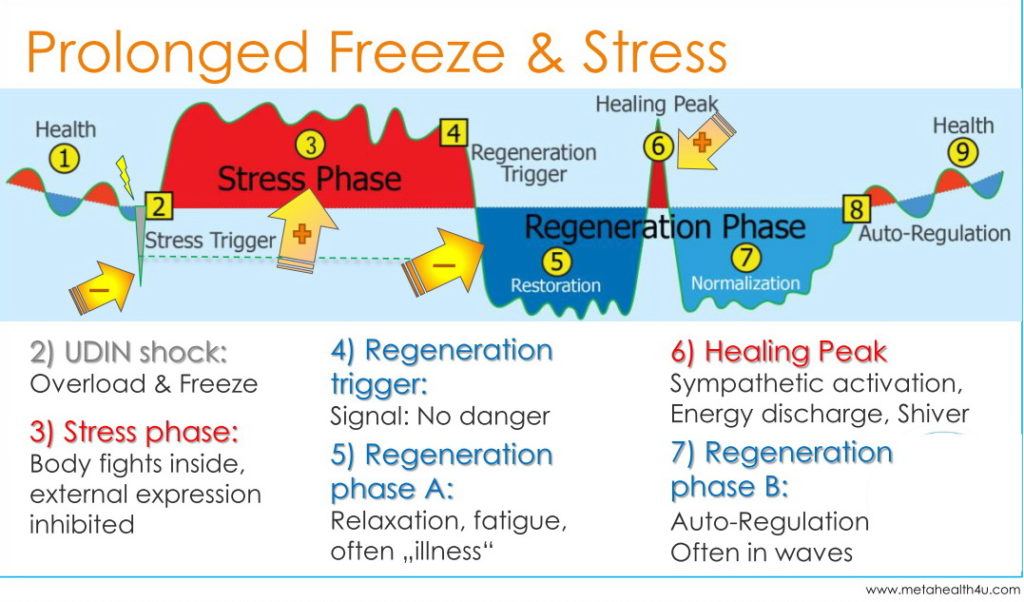 Our life is an endless path of learning, an evolving journey of personal growth and development, a discovery of who we are, and the beliefs we hold. Each step provides the opportunity to look at what shapes us to be our individual unique self.
Our life is an endless path of learning, an evolving journey of personal growth and development, a discovery of who we are, and the beliefs we hold. Each step provides the opportunity to look at what shapes us to be our individual unique self.
Mid April (2016), I visited a General Practitioner (GP), Naturopathic doctor, not because I was sick, but because I was curious to know how my health could be further improved. How were the vague, and not so vague, symptoms I was experiencing impacting on my health and wellbeing. Our discussion, energy testing (Kinesiology), and my blood test results, revealed information I needed to know.
Blood tests showed positive Antibodies (ANA) and mildly elevated Thyroid Peroxidase Antibodies (TPO Ab). Other thyroid tests were within normal range. My blood levels of Vitamin D, Zinc, Vitamin B12, and Ferritin were low (typical for many with Hashimoto’s), and Copper was high in ratio to Zinc (these two body minerals need to be in balance in our body. High in one will create low in the other).
Kinesiology revealed casein (dairy – milk products), soy, and a few other foods, at this time are not best for my body.
Hashimoto’s from a medical perspective
Thyroid Peroxidase (TPO) is the enzyme responsible for the production of thyroid hormones. Antibodies to TPO tell us the body’s immune system is ‘attacking’ the thyroid gland tissue. Over 90% of people who have Hashimoto’s Thyroiditis have TPO antibodies and approximately 80% will have another thyroid antibody named Thyroglobulin (TgAb)[1]. Thyroglobulin is a protein present in the thyroid gland from which thyroid hormones are produced.
 The medical perpective describes autoimmune condition as ‘an attack against self’. “Normally the immune system differentiates between self and non self. It reacts against foreign substances but not against itself. When the mechanism breaks down, the immune system attacks its own tissue”. When one autoimmune response occurs it is common for there to also be another. [2]
The medical perpective describes autoimmune condition as ‘an attack against self’. “Normally the immune system differentiates between self and non self. It reacts against foreign substances but not against itself. When the mechanism breaks down, the immune system attacks its own tissue”. When one autoimmune response occurs it is common for there to also be another. [2]
Nearly everyone with an autoimmune disease has Leaky Gut Syndrome so addressing your ‘leaky gut’ is a major step in reversing symptoms of autoimmune disease. [3]. In her online article Dr Wilson (2015) links leaky gut and stress as the two reasons for the increasing incidence of Hashimoto’s. [4]
The stress in our lives and our body exposure to many toxins from a wide variety of sources will be addressed in part 3 of this article.
For me, it appears I am within the first Subclinical or ‘Silent Autoimmunity’ stage of Hashimoto’s Thyroiditis.
Stages
In stage one, ’silent’ Hashimoto’s, the antibodies are present in blood 10 – 15 years before symptoms arise. What a wonderful opportunity to prevent further progression.
The 2nd stage is where some dysfunction is occurring such as headaches, muscle aches, and fatigue but how many people see this as just a part of daily life and stress.
When antibodies and cells start affecting the tissues, stage three has been entered. Now people will likely see a doctor. Unfortunately many conventional doctors do not order nor interpret the laboratory testing needed for Hashimoto’s diagnosis, a sad and repeated story for so many people with Hashimoto’s. As you will see, there is much one can do about halting the progress of thyroid destruction. (Thank you Dr Aristo Vojdani, and the Hashimoto’s Awareness Summit for information on the three stages of Hashimoto’s [2].)
It is estimated 50 million people in the USA have autoimmune (according to autoimmune association) and it is believed that a similar number have silent autoimmune. The impact on the lives of individuals, their families, their community, their country, health budgets and humanity is huge.
Understanding blood tests
An important point in understanding blood test results is in their interpretation. The range of supposed normal is not necessarily the ideal for our body. There is a marked difference in the interpretation integrative, functional, holistic and or naturopathic doctors use as to what is ideal for healthy body function and individual requirements when compared to conventional medical practice.
Laboratory Tests you need your doctor to order to diagnose and monitor Hashimoto’s: TSH, Free T4, Free T3, Thyroid antibodies – Anti-Tg Antibodies and Anti-TPO Antibodies.
Further Information
“Why Do I Still Have Thyroid Symptoms? When my Lab Tests Are Normal” by Dr Datis Kharrazian,[5] is an enlightening read, as is “Hashimoto’s Thyroiditis” by Izabella Wentz [1]. I also wish to acknowledge the work of Pearl, Fabienne and the team at Hashimoto’s Awareness [6] and, the Hashimoto’s Summit they presented with world wide experts (June 2016).
 My particular interest in Hashimoto’s Thyroiditis is from a mind – body – brain perspective, embedded in my belief we respond to the environment we live in and our body does not make mistakes. Interestingly, during my META-Health training 2 years ago, I felt compelled to explore a Hashimoto’s question we were given. Did my body and subconscious mind already know I needed to understand this?
My particular interest in Hashimoto’s Thyroiditis is from a mind – body – brain perspective, embedded in my belief we respond to the environment we live in and our body does not make mistakes. Interestingly, during my META-Health training 2 years ago, I felt compelled to explore a Hashimoto’s question we were given. Did my body and subconscious mind already know I needed to understand this?
Hashimoto’s from a Mind – Body – Brain perspective
Hashimoto’s Thyroiditis is a name for a pattern involving the thyroid gland (and the adrenal gland usually).[7]
Hashimoto’s thyroiditis or chronic lymphocytic thyroiditis is a chronic inflammation process, an autoimmune disease, in which the thyroid gland responds within a variety of cell and antibody-mediated immune processes.
Hashimoto’s is primarily an AutoImmune condition. Antibodies belong to the lymphatic system, indicating that there is more at hand than just thyroid. Hypothyroidism is a secondary symptom, stemming from repeated experiences and the strategies derived from them.[7]
Having an autoimmune condition is not something to fear but something to learn from. Your body is not attacking itself. It would never do this. The cells of the body are purely responding and adapting to something, an underlying problem. Understanding this response opens an empowering journey of learning and discovery.
From a mind – body – brain perspective, the autoimmune response relates to a traumatic time, usually early in our life, around our self-worth of not being able to cope or trust, involving the Lymphatic system. Plus a traumatic conflict specific to the thyroid.
The experienced trauma, individual and unique to the person, is always unanticipated, dramatic and isolating for them.
For the thyroid to react the conflict theme is either about
1. A recurring powerlessness / fear struggle. I am powerlessness and fearful of something / someone coming towards me, vulnerable, not safe and I can’t do anything about it.
2. A recurring survival issue of being too slow, not quick enough with the need to go faster.
3. Both 1 & 2.
For me personally, the recurring conflict is about being driven to get things done, not slowing down – and when associated with an attack against self, its like the body takes on a biological purpose to slow you down so you can rest and regenerate – slow down the thyroid and then you will not go so fast as survival depends on it. But it keeps trying to put out more hormones amongst the destruction – hence the cycling response and symptoms.


Two Phases:
Stress (Active Conflict) Phase: The thyroid cells release more hormones. (more hormones to try to help us cope). This initial over reaction of the thyroid creates hyperthyroid symptoms including overexcited, nervous, irritable, anxiety, insomnia, diarrhoea, and weight loss.
When a solution is found to the experienced conflict, Regeneration (Healing) Phase occurs. This is the phase of inflammation (thyroiditis) with typical symptoms of fatigue, needing to rest and sleep, depression, constipation, and weight gain.
Recurring conflict relapses lead to ongoing stress and regeneration cycling, – back and forth between the hyperthyroidism and hypothyroidism symptoms, and gradual destruction of the gland itself that eventually results in the thyroid’s inability to produce sufficient thyroid hormones (hypothyroidism).
Thyroiditis and elevation of antibodies may also be accompanied by symptoms of hair loss, muscle/joint aches and pains, sinusitis, fertility problems and many more.
I am grateful to learn of my autoimmune status now while subclinical. It is a gift and an opportunity to explore and learn what this means and what I can do to support my healing.
As I firmly believe that healing comes from within, and no one can heal us, I take full responsibility for my own health. Yes we need others to guide, love and support us but the ultimate process of healing is ours. It will always be our journey, our decisions, our choices.
For me, this was not a shock, but a curiosity. The ‘shock’ was what activated my body to respond in this way in the first place.
The Mind – Body – Brain connection [8] [9] [10] and Meta-Health [9], [10] provides me with the framework to explore further. The two phases and eight milestones of healing are central to this and guide each step.
Part 2, 3 & 4, will explore Hashimoto’s Thyroiditis within a Meta-Health 8 milestone approach.
Study the methodology of healing!
First published on Nurturing Naturally
References:
[1] Wentz, I., Nowosadzka, M. (2013). Hashimoto’s Thyroiditis. Chelsea Green Publishing: Vermont.
[2] Voidani, A. (2016). Notes taken from the Hashimoto’s Summit, Speaker: Dr Aristo Vojdani, PhD, MSc Proper Testing for Autoimmune Diseases and Why Current Methods Fail. Online summit presented by Hashimoto’s Awareness
[3] Carnahan, J (2016). Hypothyroid Mom. Leaky Gut: The missing piece in many Autoimmune Diseases, like Hashimoto’s Thyroiditis.
hypothyroidmom.com/leaky-gut-the-missing-piece-in-many-autoimmune-diseases-like-hashimotos-thyroiditis/
[4] Wilson, D. (2015). Hashimoto’s Disease – The Link between Thyroid and Leaky Gut.
doctordoni.com/2015/09/hashimotos-disease-and-leaky-gut/
[5] Kharrazian, D. (2010). Why Do I Still Have Thyroid Symptoms? When my Lab Tests Are Normal. Elephant Press: Carlsbad California.
[6] Hashimoto’s Awareness
hashimotosawareness.org/
[7] Klapp, K (2016). Personal Communication.
[8] Hamer, R. G. (2005).
http://www.germannewmedicine.ca/extdocs/Madrid-2005-en.PDF
[9] Fisslinger, J. (2014). Personal communication from META-Health University Practitioner training.
[10] IMMA (2004 – 2012).
International Meta Medicine Association (since 2018 META-Helth International CIC)
Image sources:
[1] Gaylene Hansen
[2] User BallenaBlanca via Wikimedia Commons
https://commons.wikimedia.org/wiki/File:Increased_intestinal_permeability.png
[3] Pixabay
https://pixabay.com/de/integration-burnout-denken-future-2141187/
[4] META-Health 4U
 META-Healthy Life articles are created by professionals and friends of META-Health International CIC, supporting individual and global health by deepening and sharing our understanding of how resilience and well-being are achieved.
META-Healthy Life articles are created by professionals and friends of META-Health International CIC, supporting individual and global health by deepening and sharing our understanding of how resilience and well-being are achieved.